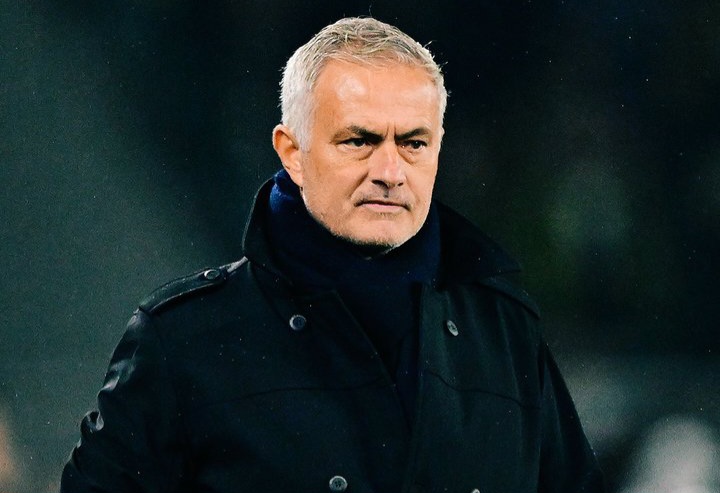
Legendary manager Jose Mourinho has opened up about the two significant regrets of his career.
The Portuguese coach left Real Madrid after three years to return to Stamford Bridge for a second stint with Chelsea, where he secured a third Premier League title in 2015.
- Man Utd star ‘agrees to leave’ in January as club crisis worsens
- Premier League release statement after ‘worst VAR call of 2024’ during Ipswich vs Chelsea
- ‘Overpriced & overpromoted’ Man Utd star ‘berated’ by Amorim vs Newcastle
However, he was dismissed seven months later under contentious circumstances. ..Continue Reading
Mourinho has revealed that his decision to leave Real Madrid and re-join Chelsea is one of his two biggest regrets.
In December 2015, Chelsea was struggling in 16th place, just one point above the relegation zone, having lost nine of their previous 16 matches.
Top Stories:
Throughout his career, Mourinho has managed Manchester United, Tottenham, and Fenerbahce, among others. Yet, staying with Roma after their loss to Sevilla in the 2023 Europa League final in Budapest stands out as another significant regret.
Mourinho has often expressed his affection for Roma, but his third season with the club descended into chaos. After receiving five red cards and with the team sitting ninth in Serie A, he was sacked in January 2024.
‘The “no” to (Real Madrid president) Florentino Perez (is one regret),’ Mourinho told Corriere dello Sport. ‘He said to me: “Don’t leave, you’ve done the hard part and the best part is yet to come.”
‘I knew it was true, but I wanted to return to Chelsea after three years of great challenges in Spain.
Mourinho added: ‘I have to talk about Budapest. Not because of the confusion with Anthony Taylor, but because I didn’t leave straight away. I should have left Roma straight away. I didn’t and it was a mistake.’
Mourinho had been hit with a four-match ban by UEFA after confronting referee Taylor in the car park and branding him a ‘f*****g disgrace’ after the defeat on penalties by Sevilla.
‘Leaving Roma was difficult, but I have grown a lot and I have learned something new every day since I won my first Champions League 20 years ago,’ he added.
‘The greatness of a coach lies in his honesty, not in relationships. The coach has become progressively less important and increasingly dependent on structures and characters who are often not prepared. There have been changes at all levels.
‘In recent years I have reached three finals, one with Manchester United and two with Roma. All of this with a bit of fun and with pride, because when you do that with a club with no history in Europe you realise that you have achieved something special.’
Although Mourinho portrayed his 2013 departure from Madrid as a rather unilateral decision, it wasn’t as if the club was entirely thrilled with his tenure. Their lofty ambitions meant they were only marginally content.
During his three-year stint, the self-proclaimed “Special One” won LaLiga, the Copa del Rey, and the Supercopa de Espana once each. Despite reaching the Champions League semi-finals three times, he failed to secure the coveted trophy.
At the time, president Perez said: ‘We have made a big jump in terms of competitiveness. Now we are back where we belong. Before we were being knocked out of the Champions League at the last-16 stage and now we are always group seeds.
‘We played some spectacular football last season. In the world of mere mortals reaching the semi-finals of the Champions League and the final of the Copa del Rey would be enough but for us it is not enough.
‘Overall, the balance is positive. It has just not been sufficiently good; neither for us nor for Mourinho. But it has not been a bad season.
‘Mourinho is the longest-serving coach in the first division. It is not easy to last three seasons — and even more so at this club.
‘If we had won a European Cup then we would not be talking about this. In England a match lasts the two hours before a game, the two hours of the game, and then the two hours afterwards. Here it is seven days a week and the pressure tells. We would have liked him to continue but the pressure was just not sustainable and went beyond the limits of normality, with insults unbecoming civilised people.’

Leave a Reply